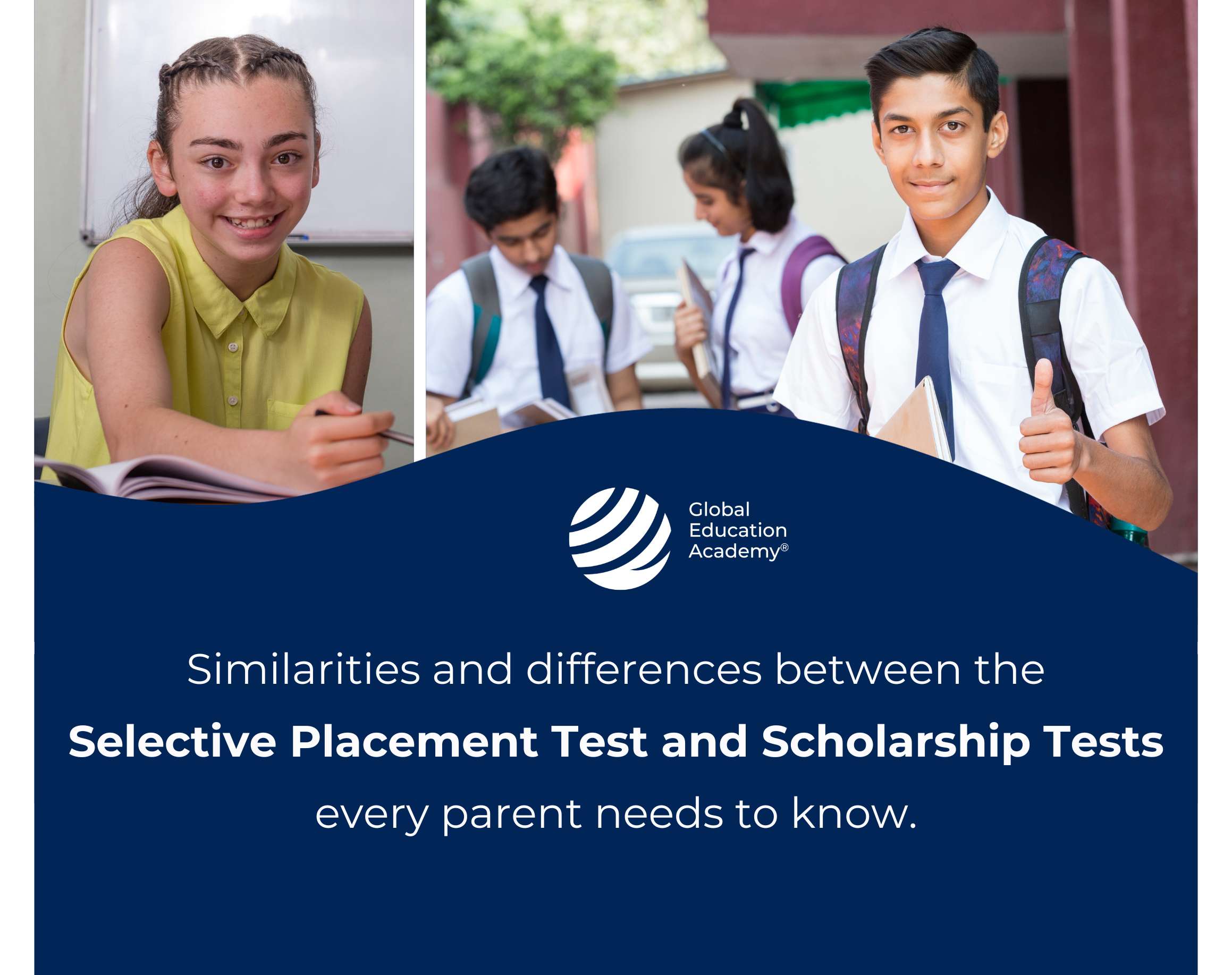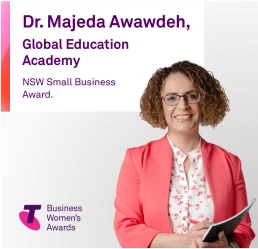
We usually get asked the question “Does the selective course prepare students for the scholarship test as well?”
The information is there, however, it is very scattered, ambiguous and confusing.
To answer this question, let us first look at the common skills these assessments assess (Selective and Scholarship):
Reading: The ability to grasp, analyse, and interpret diverse forms of texts, such as fiction, nonfiction, poetry, or media pieces, is required for this competence. The questions may ask students to identify a text’s core idea, purpose, tone, inference, language, or structure. The questions can be presented in a more traditional manner or in novel approaches, such as a cloze or text comparison.
Mathematics: This skill entails the ability to solve numerical problems using mathematical knowledge and logic. Topics such as arithmetic, algebra, geometry, data interpretation, and quantitative comparison may be covered in the questions. The ability to solve problems is the most important skill.
General Ability / Thinking Skills: This ability entails the ability to think logically, analytically, and creatively in a variety of settings. The questions may assess their abilities in abstract thinking, verbal reasoning, or numerical reasoning. Students must recognise patterns, relationships, or laws among shapes, symbols, or images in order to answer abstract reasoning questions. In order to answer verbal reasoning questions, students must employ language skills such as analogies, synonyms, antonyms, and word puzzles. Numerical reasoning necessitates the use of mathematical concepts such as fractions, decimals, percentages, and ratios.
Writing: This skill involves the ability to express ideas clearly and effectively in written form. The questions may ask students to write a creative or analytical piece on a given topic or prompt. Creative writing questions require students to use their imagination and originality to write a story, a diary entry, a newspaper report, a letter or a speech. Analytical writing questions require students to use their logic, creativity and evidence to write these types of texts.
Let’s have a quick look at the most popular scholarship and selective tests: ACER, AAS, EDUTEST, The Selective School Entry Test.
| Reading | Mathematics | Thinking Skills | Writing | |
| Selective Entry Test
Entry to Year 7 – students sit the test in Year 6 in May. |
Reading: – Different types of texts – Different types of questions4 different types of styles (standard, comparison, cloze and extracts
30 questions (MCQ) |
Mathematical Reasoning: – Problem solving style (word problems)
35 questions (MCQ) |
Thinking Skills: – Deductive reasoning – Inductive reasoning – Critical thinking – Spatial awareness – Verbal reasoning 40 questions (MCQ) |
Writing: – Any genre could be assessed, but usually has the creative element in it.
One question |
| ACER
Entry to Year 7 – usually, students sit the test in Year 6 in Feb. |
Humanities – Comprehension and Interpretation: Students are required to think critically and make judgements about different types of texts, including fiction, non-fiction, poetry, drama, diagrams and maps.
40-45 questions (MCQ) |
Mathematics: The focus is on mathematical/ quantitative problem solving, including:
– analysis and interpretation of mathematical/quantitative information,
32-36 questions (MCQ) |
There is no standalone test. Verbal, non-verbal and deductive reasoning and the critical thinking skills are all included in the Humanities and the mathematics tests.
|
Two Written Expression: one at the start of the test and one at the end 1. Persuasive and
Two questions |
| AAS (Academic Assessment Services)
Note: customised and specific to a school’s needs. |
Reading Comprehension (English) : Assesses the ability to remember, locate, analyse, evaluate, derive and combine text propositions with fiction and non-fiction texts of increasing complexity
60 questions |
Mathematics Achievement and Reasoning (Maths): Includes: – curriculum-related mathematics tasks and mathematical reasoning tasks – mathematics reasoning tasks which can be different to curriculum-based mathematics and focus on problem-solving skills 50 questions |
Abstract Reasoning and Problem Solving (GA): Assesses the ability to reason with and analyse information using verbal, mathematical, figural and spatial concepts.
75 Questions |
One Written Expression: Persuasive OR Narrative (based on the school requirement)
One question |
| Edu Test – The ability test & the achievement test
(scholarship or selective entry after Year 7 in some selective schools) |
Achievement test: Reading comprehension Measures the capacity to read and interpret meaning from written passages, as well as correct, complete and punctuate sentences.
45 questions (MCQ) |
Achievement test: Mathematics Measures year-level appropriate mathematical knowledge, including items tapping numbers, measurement, algebra, space and data.
40 questions (MCQ) |
Two tests:
1. Ability tests: Verbal Reasoning 60 questions (MCQ) 2. Ability test: Numerical reasoning 50 questions (MCQ) |
One Written Expression Any of the following modes of writing may be assessed: creative, descriptive, narrative, persuasive, expository or informative.
One question |
multiple choice questions (MCQ)
How to prepare?
When it comes to tutoring for selective and or tutoring for scholarship exams, it is important to focus on developing comprehensive skills rather than just teaching for the test. While it is essential for students to familiarise themselves with the exam format and content, the true value lies in nurturing their thinking skills and building confidence in solving unfamiliar questions under exam conditions.
Our tutoring course goes beyond simply preparing students for the selective test. We understand the importance of instilling critical thinking abilities, problem-solving techniques, and the self-assurance needed to tackle any challenging question that may come their way during exams.
By emphasising these skills, we ensure that our students are not only well-prepared for the selective entry test but also equipped with a strong foundation that can benefit them in various academic pursuits. Our comprehensive approach covers both selective and scholarship tutoring, providing a holistic learning experience that empowers students to excel in any examination scenario.
At our tutoring center, Global Education Academy, we believe in teaching students how to think rather than just what to think. We encourage them to approach questions with confidence and apply their knowledge creatively. With our guidance, they will develop the skills necessary not only for success in selective and scholarship exams but also for lifelong learning and problem-solving.
Our Selective and Scholarship tutoring course (S&S) covers all the skills students need to do well in these tests. Not only the content they need but also the ability to understand, analyse and solve questions within a limited time.
Here is what we offer in the Selective and Scholarship tutoring course:
In addition, our course teaches students how to lessen their cognitive load during the exam. Teach them exam methods, time management techniques, and confidence-building techniques. We celebrate progress rather than the best score.
In order for your child to benefit from this tutoring course, we recommend that they take the benchmark test to ensure that they have the fundamentals to cope with and enjoy the course.
The diagnostic benchmark assessment will be the first step. This will help us and you understand students’ strengths, shortcomings, and potential. Furthermore, it will indicate what areas need our attention. The assessment includes:
This assessment can be done face to face or online, takes 1.5 hours, and is followed by a feedback session with our head teacher.







